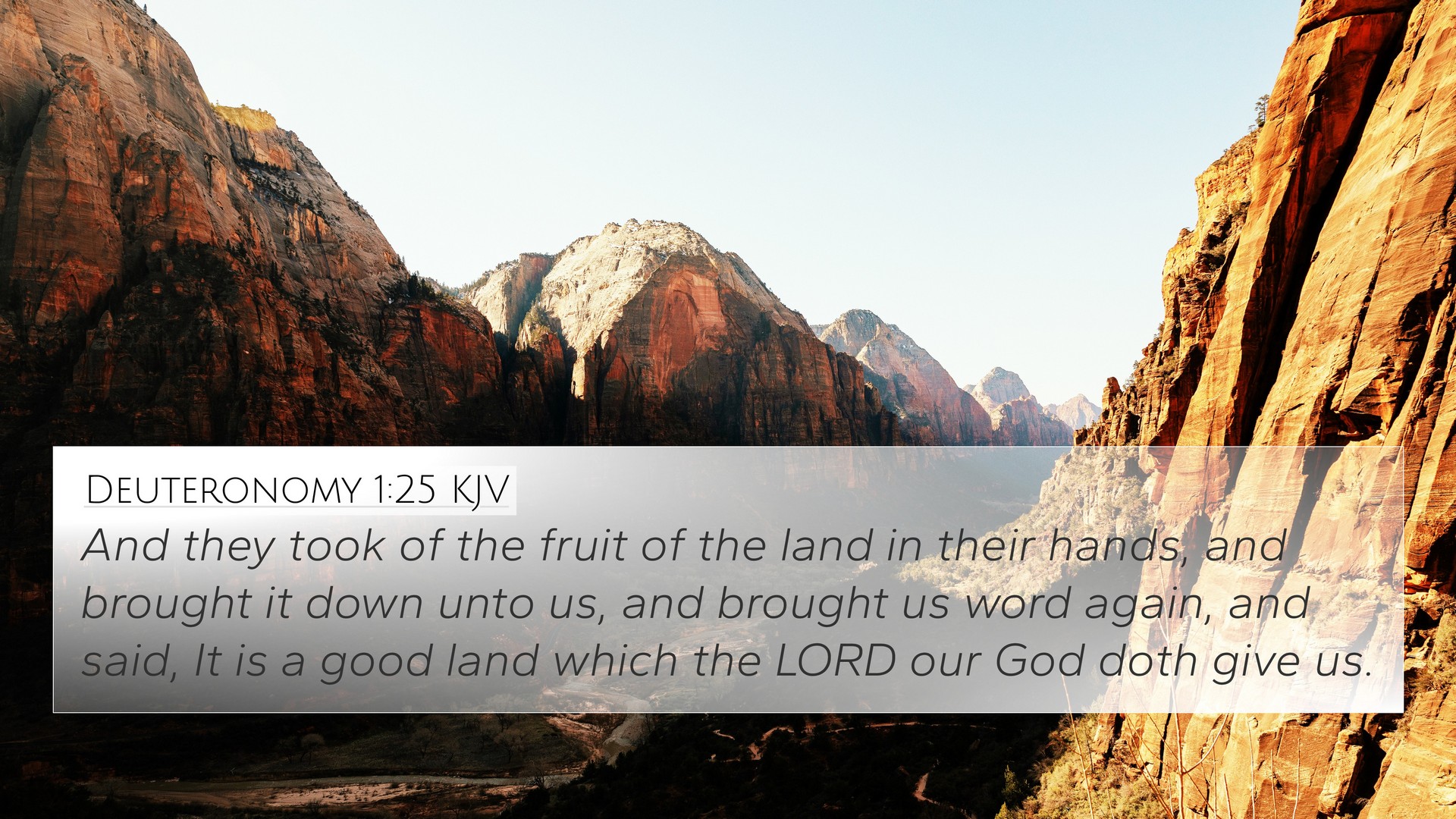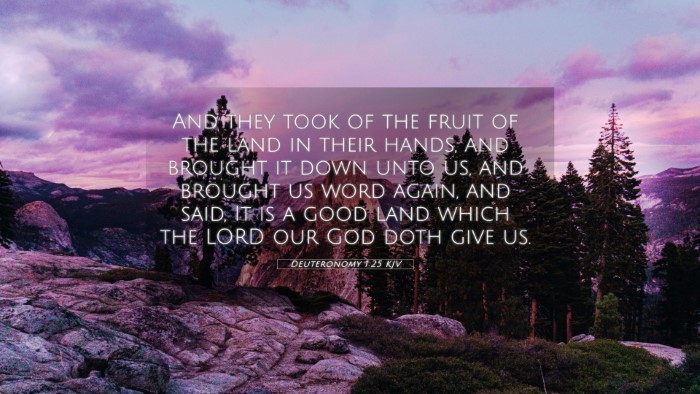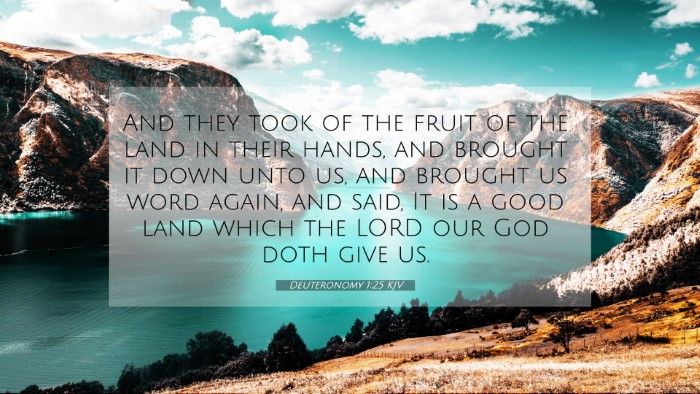Understanding Deuteronomy 1:25
Verse: "And they took of the fruit of the land in their hands, and brought it down unto us, and brought us word again, and said, It is a good land which the Lord our God doth give us." - Deuteronomy 1:25
Summary and Interpretation
In Deuteronomy 1:25, we find the account of the Israelite spies who examined the land of Canaan and returned to affirm its abundance and goodness as a gift from God. This verse encapsulates the essence of divine promise and human testimony.
Insights from Public Domain Commentaries
-
Matthew Henry:
Henry emphasizes that the report of the spies serves to elevate the Israelites' expectations of the Promised Land. The fruit they brought back symbolizes God's provision and the richness awaiting them, reinforcing the importance of faith and trust in God's promises.
-
Albert Barnes:
Barnes points out that this verse is crucial for understanding God's intentions toward His people. The 'good land' not only reflects physical abundance but also signifies a spiritual inheritance, encouraging the Israelites to embrace their identity as God's chosen people.
-
Adam Clarke:
Clarke adds a historical context to the verse, noting that the fruit exemplifies the land's fertility and God's grace. He elaborates on the spies' role as witnesses to God's faithfulness and their subsequent influence on the peoples' readiness to enter the land.
Connection with Other Bible Verses
Deuteronomy 1:25 is intertwined with various biblical themes, exemplifying the connections that thread throughout scripture. Below are significant Bible verse connections:
- Numbers 13:23-27: The spies' exploration of Canaan and their report mirrors the message found in Deuteronomy 1:25.
- Exodus 3:8: God's promise of a land flowing with milk and honey is reiterated here, highlighting His faithfulness.
- Joshua 1:6-9: Joshua is instructed to take possession of the land, building on the affirmations found in Deuteronomy.
- Psalms 106:24-25: The psalmist recalls the people's complaints against the good land, reflecting their doubt in contrast to the assurance given in Deuteronomy.
- Hebrews 11:9-10: The faith of Abraham and his descendants shows the long-standing promise of the land as a place of fulfillment.
- Romans 15:4: The importance of scriptures, including the Old Testament narratives like Deuteronomy, as a means of hope and learning.
- Galatians 3:29: The theme of inheritance continues, with believers as children of God entitled to the promises made.
Thematic Connections and Cross-Referencing
This verse invites a thematic biblical analysis, where the connection between prosperity, trust in God, and obedience plays a vital role. By cross-referencing, we can explore the broader narrative of trust in God’s promises throughout the Bible:
- Faithful Obedience: Follow the theme from Deuteronomy through to the New Testament, emphasizing God's promises contingent on obedience.
- The Land of Promise: Through Hebrews and Revelation, the concept of a promised land surfaces, connecting spiritual and physical inheritance.
- God’s Provision: Examine the motif of divine provision through accounts in the Gospels where Jesus feeds multitudes, reflecting the richness of God's gifts.
- Spiritual Abundance: Link with teachings on spiritual fruits in Galatians (Galatians 5:22-23) illustrating God's gifts manifested in believers' lives.
Tools for Bible Cross-Referencing
To delve deeper into the connections among these verses, several tools and methods can aid in your study:
- Bible concordance for finding related verses.
- Cross-reference Bible study guides that help link scriptures together.
- Digital Bible reference resources for comprehensive searches on cross-references and themes.
- Utilizing chain references for thematic explorations through different biblical texts.
- Employing thematic indexes in study Bibles or commentaries to draw connections effectively.
Engagement and Reflection
When exploring Deuteronomy 1:25, consider your personal reflections. How does this promise of a good land resonate with your spiritual journey? In what ways can you relate it to your experiences of God's provision and faithfulness?


